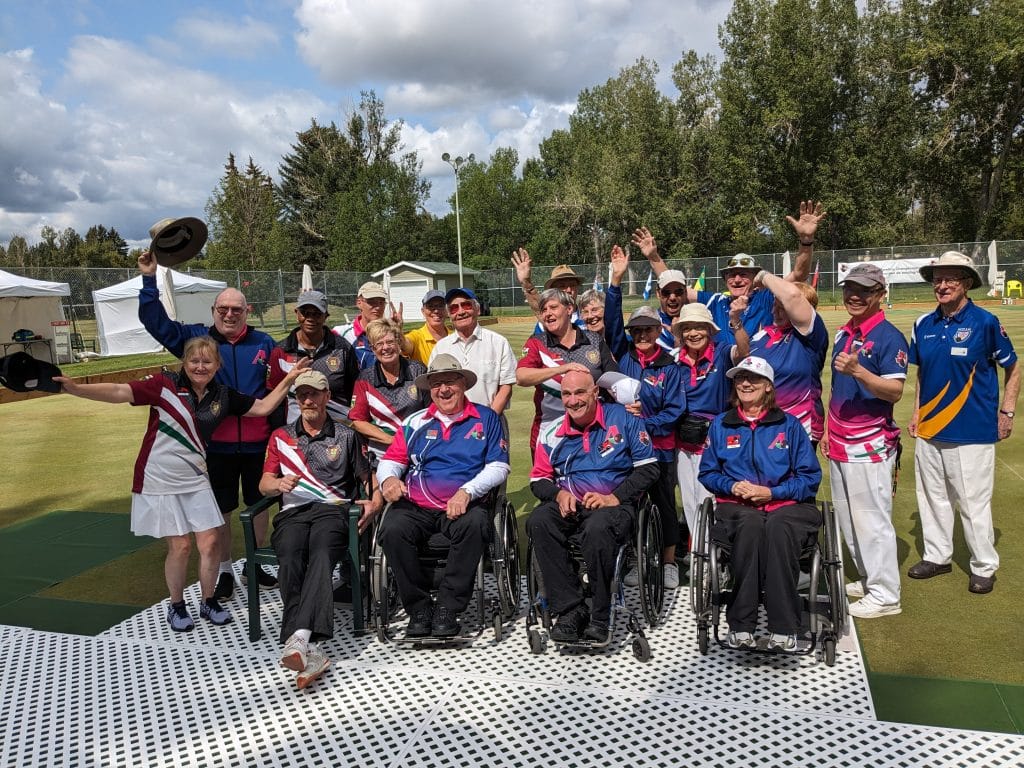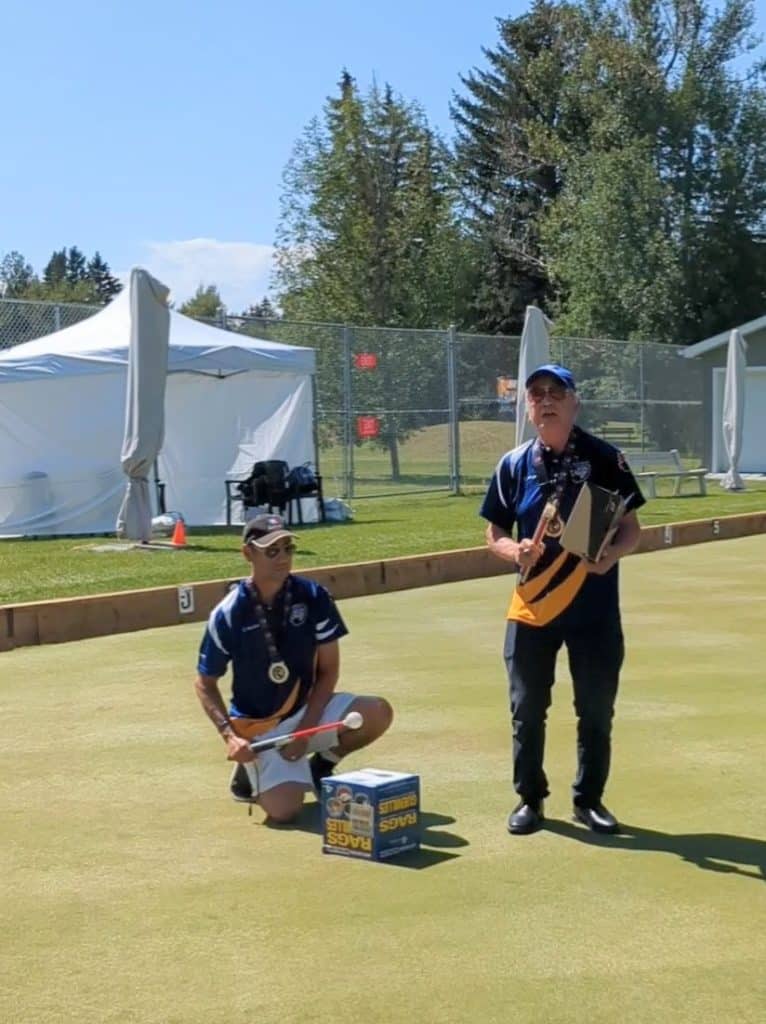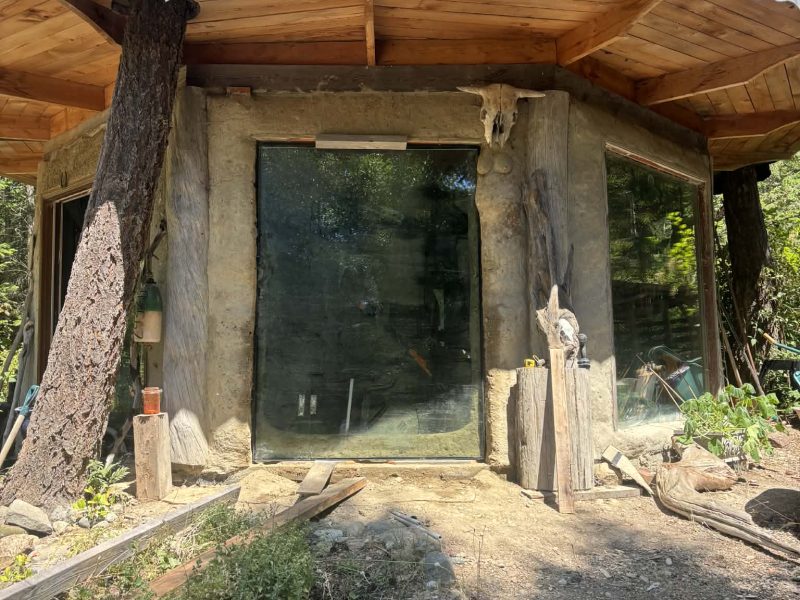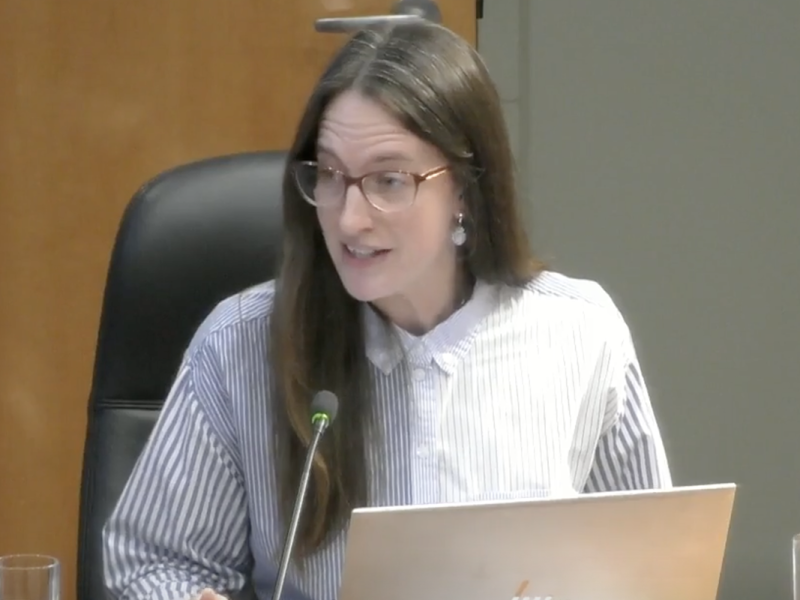
Visually impaired lawn bowler Randy Fred says though his recent win at the national Para Bowls Championships feels good, he has concerns about enrollment numbers in the sport locally and is working to ensure its future.
Fred, who is also a writer, publisher and Elder from c̓išaaʔatḥ (Tseshaht First Nation) who now lives in Snuneymuxw homelands, won gold in the B-1 category at the championships, which is for those who are fully blind.
Two other visually impaired lawn bowlers who traveled to Calgary for the championship with Fred from the Nanaimo Lawn Bowling Club also won medals: Dave Ruckman, who won gold in the B-4 category, and Jay Gatley, who won silver in the B-3 category.
The tournament took place from July 25 to 30, and was open to those with both visual or physical impairments. The game is played on a lawn or green and players roll the resin bowls — which follow an elliptical path — towards a white ball called a jack.
Visually impaired lawn bowlers compete in partnership with a sighted director, who helps guide the bowler. Fred works with director Adrian Hewitt, who also traveled to the championships.
“So he stands behind me, usually, and then I have kind of an unusual delivery where I crouch down and I put my left hand in front of me and I aim at my fingertips. I swing the ball, and then he tells me, go left or right,” says Fred. “A fraction of an inch on this end means a big difference on the other end because the balls are weighted, they’re biased, so when they start slowing down they curl into the centre.”

This was the second-ever Para Bowls Championship, and according to Bowls Canada Boulingrin, the governing body responsible for lawn bowls, these competitions are crucial to their goal of growing the sport in Canada.
In 2021, with funding from the Government of Canada, the organization launched their “Just Roll With It” program aimed at addressing the gap in programming and facilities specifically for lawn bowlers with disabilities. Last spring they expanded it nationally.
It’s a goal that Fred and his Nanaimo-based teammates share. A combination of aging members, a need for volunteer recruitment and challenges related to COVID-19 has caused their numbers to dwindle.

“We used to level out at a dozen every year, but now we’re down to six,” he says. “We used to have enough people in B.C. to have a provincial championship, but when the B.C. Summer Games lost their funding, it had a really negative impact on the visually impaired lawn bowling clubs.”
That said, a few new members have joined their group this year, and the Nanaimo team has been keeping the game alive by helping other organizations to train their directors, coaches and players, says Jay Gatley, who has some vision in one eye and won silver at the championships in the B-3 category, which is for those who are partially sighted.

“We travel within B.C. helping other lawn bowlers and teaching their coaches how to teach blind people. So we go to Kamloops and help them out,” he says. “We had two people from Vancouver come across and we helped teach them too, so they could take it back to their clubhouse.”
Gatley, who is a member of the Mowachaht/Muchalaht First Nations and helped start Nanaimo Pride in the 1990s, was an athletic child who loved figure skating and dancing, and started five-pin bowling on a team in Surrey. He switched to lawn bowling about 15 years ago once his vision began to fail.
“Somebody brought it up to me and I was like, ‘No, that’s for old people,’” Gatley says with a laugh. “So I tried it out and I just fell in love with it. It made my mind think geometry. It’s not just straight bowling… it makes you think.”

The relationship between the visually impaired lawn bowlers and their guide can also be quite special, and Gatley says he’s been working with his director Roelie Roos from the very beginning.
“I call her my second mom, and I remind her of her brother that passed. So we have a good connection and work really well together,” says Gatley. “She goes everywhere that I go.”
At the end of the championships, Fred and Gatley performed a traditional c̓išaaʔatḥ song for the crowd that was a favourite of Fred’s father. They didn’t have room to bring their drums over on the airplane, so they improvised by banging their white canes on cardboard boxes, says Fred with a laugh.

“We’re a bit of a comedy act when we get together,” says Fred.
After the traditional song Fred told the crowd that in Nuu-Chah-Nulth territory there is a phrase, hishuk-ish tsawalk which means, “Everything is one.”
“Then I got them to sing along with [Sister Sledge’s] We Are Family,” he said with a chuckle. “Afterwards, I got everybody to hug each other.”
Visually or physically impaired players who want to join in are encouraged to contact the Nanaimo Lawn Bowling Club at 500 Bowen Road or drop in to the club on Tuesday mornings from 9 to 11:30 a.m.



